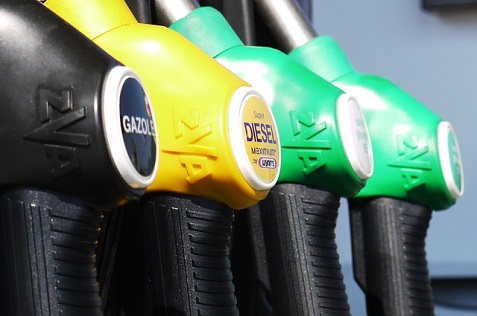Diesel or Petrol: Choosing the Type of Fuel Your Next Car is Powered By

Although there is now a third alternative in the form of electric-powered vehicles, the purchase price makes the idea cost prohibitive to many motorists at the moment, which leaves the conventional dilemma or whether to choose a diesel or petrol version.
Once you make your mind up about which fuel type will power your next car, remember your decision at the petrol station, unless you want to be rescued by someone like wrongfuelincarrecovery.co.uk.
Here is a look at the pros and cons of diesel and petrol, which might help you to decide the option that works for you.
An important decision
It is worth pointing out to start with that the decision you make as to whether you opt for a diesel or petrol car is not one you should take lightly when you look at the financial implications at stake.
If you are an average motorist, it is highly likely that you will end up spending somewhere in the region of over £100,000 on fuel, which easily makes the cost of filling up your tank on a regular basis one of the largest motoring expenses you will face by some margin.
Consider your motoring needs
What you use your car for should be a major influence on your decision to choose either diesel or petrol. As a general rule, if you are someone who covers plenty of miles over the year and have a lot of motorway journeys to do on a regular basis, then it is likely that a diesel car may be the better option.
If you use your car for lots of small journeys, such as school runs and going to the shops and other local tasks, it will probably turn out to be a more economical option if you buy a petrol car.
You will often find that buying a diesel car is more expensive than a petrol equivalent, and you might discover as well that the cost of diesel is more expensive at the pump, but the greater level of fuel efficiency that a diesel car tends to possess should offset these extra expenses, especially if you are a regular on the motorways.
If you are going to drive a minimum of 12,000 miles a year, this should allow you to recoup about £1,000 of those additional costs within about two years.
Consider your motoring needs and how you intend to use your vehicle, as this will be a fundamental aspect of your purchasing decision.
The case for diesel
Diesel engines are considered to be more fuel efficient than their petrol counterparts, using somewhere between 15-20% less fuel.
This means that the diesel cars tend to hold their resale value well and the lower CO2 emissions attributed to diesel vehicles, means that they are often placed in a lower tax band than a petrol equivalent of the same model.
The case for petrol
The obvious selling point for petrol vehicles is that they are often cheaper to buy than a diesel version, and the cost of petrol is lower too.
Although diesel engine technology has resulted in quieter engine noise, petrol engines are still often more refined and not as noisy. We are also starting to witness a shift towards hybrid engines that could be a popular option for some of us going forward, especially in view of the recent issues with diesel emissions data and the potential harmful outputs they might be producing when they regenerate their particulate filters.
Weighing up the pros and cons
Financial considerations are obviously a big factor and will definitely have a bearing when trying to decide whether to go for a diesel or a petrol version of the car you want to buy.
If you look at a list of the best selling cars in the UK, such as a the Ford Focus and a Volkswagen Golf, the top six vehicles are all cheaper to buy as a petrol version, with an average saving of just under £1,500.
Taking those same top six cars and comparing the cost of buying fuel for the first 30,000 miles, the diesel car will give you an average savings of close to £500.
So when you are trying to decide which type of fuel would be a better option, consider how you will use your car, how much you have to spend and resale values, all of which will have a bearing on your decision.
Ansis Zviedris studied construction for eight years in Riga, Latvia where he received a construction degree. When he was 23, he decided that he wanted to see the world, working in the United Kingdom and China for General Electrics. During these years, Ansis gained a lot of experience in manufacturing processes, Quality Management Systems and the vehicle repair industry and decided to use his knowledge to create a mobile car repair business.
Related Posts
Posted in: Lifestyle
Tags: fuel mileage





